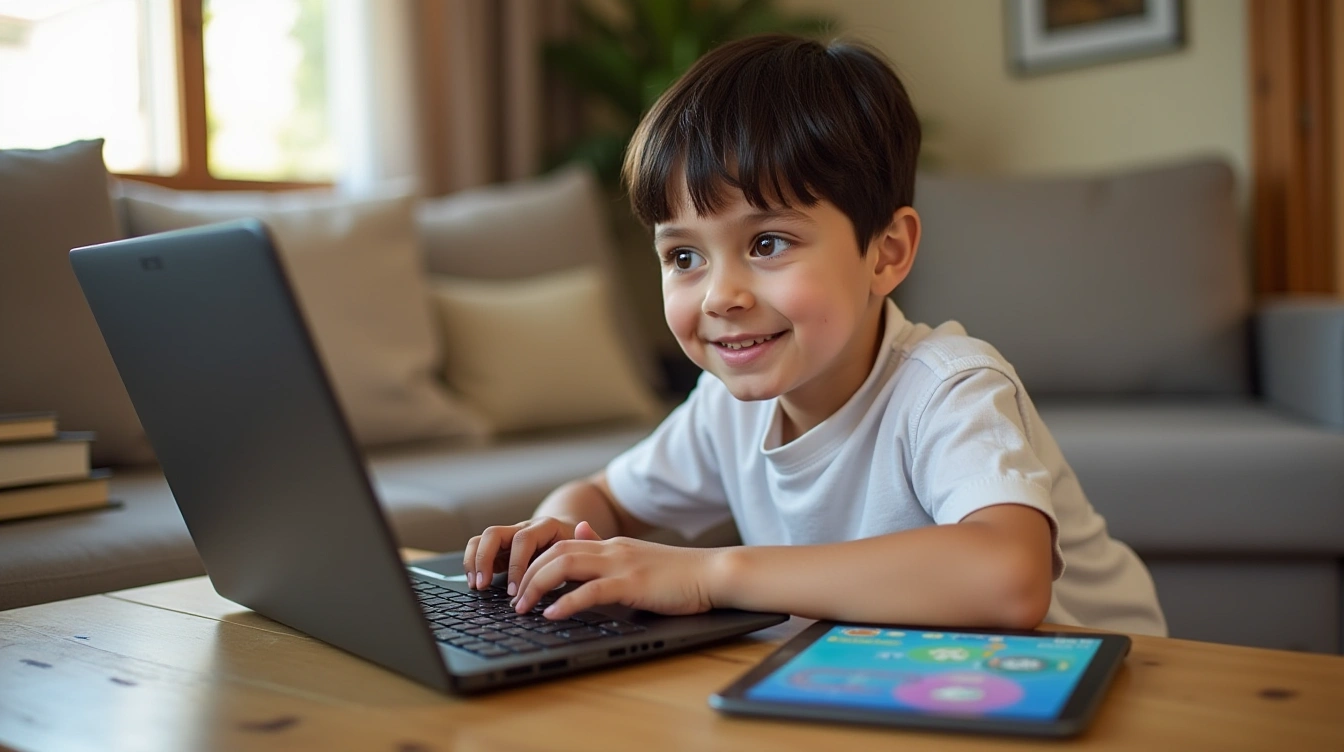Why Are Online Arabic Learning Programs Designed for Kids Becoming Essential?
The demand for online Arabic learning programs designed for kids has surged dramatically as parents recognize the importance of multilingual education. Recent studies reveal a 40% increase in Arabic language enrollment among young learners in 2025, according to the International Language Education Association. Modern families face a crucial challenge: how can they ensure their children receive authentic Arabic education while building strong foundations for both language mastery and cultural understanding? Today’s parents can find high quality arabic courses for children online with qualified Arabic teachers with Ijaza certification for children who understand young minds and adapt their teaching methods accordingly.
What Makes Qualified Arabic Teachers with Ijaza Certification Perfect for Children?
When parents search for children’s Arabic language courses with qualified teachers, they’re essentially looking for educators who understand both the sacred nature of Arabic and the unique learning patterns of young minds. According to recent educational data, 72% of children who learn Arabic with certified instructors demonstrate significantly better pronunciation and comprehension skills compared to those learning through self-study methods (International Language Education Association, 2025).
In parallel : Comprehensive Insights to Monitor This Year: Must-Watch Trends and Analysis
The Ijaza certification represents far more than academic credentials – it’s a sacred chain of transmission that connects today’s young learners to centuries of authentic Arabic scholarship. Teachers holding this certification have undergone rigorous training not just in language mechanics, but in the spiritual and cultural context that makes Arabic learning meaningful for children. They understand that teaching Arabic to a seven-year-old requires completely different approaches than instructing teenagers or adults.
These qualified Arabic teachers with Ijaza certification for children bring patience that comes from deep understanding of their subject matter. They know when to slow down for complex grammar concepts, when to incorporate playful elements to maintain engagement, and how to build confidence in young learners who might feel intimidated by Arabic script. Their certification ensures they can provide accurate pronunciation guidance, proper tajweed instruction, and age-appropriate explanations of linguistic concepts that help children develop genuine fluency rather than mere memorization skills.
Also read : The Revolutionary Future: Catalysts for Unprecedented Change
Essential Features of Comprehensive Arabic Programs for Young Students
When selecting comprehensive Arabic education for children of all ages, parents should look for programs that address every aspect of language acquisition. The most effective platforms integrate multiple learning components to ensure young students develop well-rounded Arabic skills from the very beginning.
Here are the essential features that distinguish quality Arabic learning platforms:
- Complete Arabic program covering reading writing speaking listening – Four core competencies developed simultaneously through structured lessons that build upon each other progressively
- Interactive multimedia content including games, visual aids, and audio exercises that keep young learners engaged while reinforcing vocabulary and grammar concepts
- Personalized learning paths that adapt to each child’s pace and learning style, ensuring no student falls behind or feels overwhelmed by the material
- Regular progress tracking with detailed reports for parents, showing improvements in pronunciation, reading fluency, and comprehension skills
- Cultural context integration that helps children understand Arabic within its rich Islamic heritage, making language learning more meaningful and memorable
- Flexible scheduling options allowing families to choose lesson times that work with their daily routines and commitments
- Qualified Arabic teachers with Ijaza certification for children who understand developmental stages and can adapt their teaching methods accordingly
These comprehensive features ensure that young students receive authentic Arabic education while building strong foundations for lifelong language proficiency.
How Do Interactive Methods Help Young Learners Speak Arabic Fluently?
When children engage with Arabic classes that help young learners speak fluently, they discover that interactive methods transform the traditional learning experience into an engaging journey. Young minds naturally absorb language through play and exploration, making interactive approaches particularly effective for Arabic acquisition. Games that incorporate Arabic vocabulary allow children to practice pronunciation without the pressure of formal instruction, while storytelling sessions in Arabic create emotional connections to the language that enhance retention.
The magic happens when children participate in role-playing activities using Arabic dialogue, where they naturally develop conversational skills through authentic interactions. Digital platforms now offer immersive experiences where young learners can explore virtual Arabic-speaking environments, practicing real-life scenarios like ordering food or introducing themselves to new friends. These Arabic immersion method for children approaches gradually build confidence as students realize they can communicate meaningful ideas in their new language.
Interactive methods also address the unique learning patterns of different age groups, with teachers adapting activities to match developmental stages. Younger children might learn through Arabic songs and movement games, while older students engage with interactive storytelling apps and conversation partners, ensuring that each child’s natural learning style supports their journey toward fluency.
What Age Should Children Start These Specialized Programs?
The optimal window for beginning online Arabic learning programs designed for kids typically opens around four to five years of age, when young minds demonstrate remarkable plasticity for language acquisition. During this critical developmental phase, children naturally absorb phonetic patterns and pronunciation nuances that become increasingly challenging to master in later years.
Early preschool years offer unique advantages as children haven’t yet solidified their native language patterns completely. Their brains readily adapt to Arabic’s distinct sounds and rhythm, making pronunciation feel intuitive rather than forced. Many families discover that introducing Arabic during this period creates a foundation where the language feels familiar and welcoming rather than foreign or intimidating.
However, children’s individual readiness varies significantly beyond chronological age. Some youngsters show exceptional focus and engagement at four, while others benefit from waiting until six or seven when their attention spans have matured. Qualified Arabic teachers with Ijaza certification for children recognize these individual differences and adapt their teaching approaches accordingly, ensuring each student progresses at their own comfortable pace while building confidence in their linguistic abilities.
How Much Investment Do Quality Online Sessions Require?
Investing in comprehensive Arabic education for children of all ages represents exceptional value when you consider the lifetime benefits of bilingual proficiency. Quality platforms typically structure their pricing around forty-five minute sessions with certified instructors, offering flexible monthly subscriptions starting from thirty euros. This accessible pricing model ensures that families can provide their children with authentic language instruction without overwhelming their household budget.
The value proposition becomes even more compelling when examining what these sessions include. Private Arabic tutoring sessions lasting forty five minutes with qualified teachers holding Ijaza certification deliver personalized attention that group classes simply cannot match. Your monthly investment covers not just instruction time, but also progress tracking, customized learning materials, and ongoing communication with your child’s dedicated teacher.
Budget flexibility remains a cornerstone of quality online education platforms. Parents can choose between monthly, semester, or annual payment plans, with longer commitments often providing additional savings. This approach recognizes that educational investments require sustainability over time, allowing families to maintain consistent instruction while managing their financial planning effectively throughout their child’s learning journey.
Can Children Successfully Combine Quranic Studies with Literary Arabic?
The integration of Quranic studies with literary Arabic creates a powerful educational foundation that many families find remarkably effective. Online Arabic learning programs designed for kids increasingly demonstrate how these two disciplines complement each other beautifully, with memorization of sacred texts naturally reinforcing linguistic comprehension and vocabulary development.
When children engage in Quran recitation classes specifically designed for young students, they absorb classical Arabic structures and expressions that enhance their overall language mastery. This holistic approach allows young learners to understand the deeper meanings behind the verses they memorize, transforming rote learning into meaningful comprehension. The rhythmic patterns and melodic qualities of Quranic recitation also support pronunciation skills and phonetic awareness in ways that traditional grammar lessons alone cannot achieve.
Qualified teachers with Ijaza certification understand how to weave these elements together seamlessly, ensuring that children progress harmoniously in both areas. Rather than viewing Quranic studies and literary Arabic as separate subjects, this integrated methodology recognizes their natural synergy, where sacred text memorization strengthens linguistic foundations while Arabic language skills deepen spiritual understanding and connection to the divine message.
Your Questions About Online Arabic Learning for Children
Parents frequently seek clarity about online Arabic learning programs designed for kids and how these services can benefit their children’s linguistic development. Here are the most common questions about Al-Kunuz’s approach to Arabic education.
What is the best age to start learning Arabic for children?
Children can begin Arabic learning as early as four years old. Our qualified Arabic teachers with Ijaza certification for children adapt methods according to each child’s developmental stage and readiness.
How long does it typically take for children to show progress?
Most young learners demonstrate noticeable improvement within three to six months of consistent practice. Progress depends on lesson frequency, child’s age, and engagement level during sessions.
What qualifications do your Arabic teachers possess?
All instructors hold Ijaza certifications and specialize in children’s education. They’re trained in age-appropriate teaching methods like Minatu-Rahmane and Qaaida An Nouraniya for effective learning outcomes.
How does technical support work for families?
We provide comprehensive technical assistance including platform tutorials, troubleshooting guides, and dedicated support staff. Families receive setup help and ongoing technical guidance throughout their learning journey.
How do you measure my child’s learning progress?
Teachers conduct regular assessments and provide detailed progress reports. Parents receive monthly updates highlighting achievements in reading, writing, speaking, and Quran recitation classes specifically designed for young students.
What specific services does Al-Kunuz offer for children?
We provide private Arabic tutoring sessions lasting forty five minutes, personalized curriculum planning, flexible scheduling options, and comprehensive programs covering both literary Arabic and Quranic studies for young learners.




